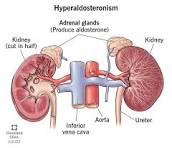INTRODUCTION:
HEALTH IS WEALTH-Natural remedies have been a cornerstone of healing for centuries, long before
the advent of modern pharmaceuticals. Across cultures and civilizations, people
have relied on nature’s gifts—herbs, roots, fruits, and holistic practices—to
restore health and vitality. While this encyclopedia does not seek to undermine
the importance of medical science, it aims to complement it by shedding light
on time-tested natural solutions. It encourages further research into the power of
nature in healing, offering insights into remedies that have provided relief to
countless individuals. One sickness has the power to wreck a man’s lifetime savings and
investments. Taking care of one’s health is not an investment but the greatest investment.
NATURAL REMEDIES FOR APPENDICITIS
Appendicitis is a serious and potentially life-threatening condition
involving inflammation of the appendix. It typically presents with sharp
lower right abdominal pain, nausea, vomiting, and fever. Most cases of
appendicitis require emergency surgery to remove the inflamed
appendix (appendectomy). While some natural remedies may ease
general digestive discomfort, they must never be used as substitutes for
professional medical care when appendicitis is suspected.
1. Ginger Tea:
How it works: Ginger contains gingerol, a bioactive compound
with anti-inflammatory and antispasmodic effects. It may help
relieve general abdominal discomfort and reduce nausea often
associated with digestive distress.
Preparation: Grate or slice 1 inch of fresh ginger, add to a cup
of boiling water, cover and steep for 10–15 minutes. Strain and
add honey if desired. Ginger is widely available in grocery stores
and local markets.
2. Peppermint Tea:
How it works: Peppermint contains menthol, which relaxes
gastrointestinal muscles, potentially reducing spasms, gas, and
bloating that can cause abdominal discomfort.
Preparation: Steep fresh peppermint leaves or a peppermint tea
bag in boiling water for 5–10 minutes. Strain and drink warm.
You can find peppermint tea in most grocery stores and herbal
shops.
3. Fenugreek Seeds:
How it works: Fenugreek seeds are known to support digestion
and may help alleviate mild constipation, which sometimes
contributes to abdominal pressure and discomfort.
Preparation: Soak 1 teaspoon of fenugreek seeds overnight in a
glass of water. Drink the water on an empty stomach in the
morning. Fenugreek is available in health food stores and local
markets.
4. Castor Oil Packs:
How it works: When applied externally, castor oil may help
stimulate lymphatic circulation, reduce inflammation, and relieve
localized pain or cramping.
Preparation: Soak a clean cloth in castor oil, wring it out, and
apply it to the lower abdomen. Cover with plastic wrap and a
warm compress or hot water bottle for 30–60 minutes. Use
caution, as castor oil can stain fabrics and irritate sensitive skin.
5. Aloe Vera Juice:
How it works: Aloe vera juice has mild anti-inflammatory and
soothing effects on the gastrointestinal tract and may aid in easing
digestive discomfort.
Usage: Take 1–2 tablespoons of pure aloe vera juice daily. Avoid
commercial products with added sugars or preservatives. Aloe
vera juice is available at health stores and organic markets.
Key Consideration:
Appendicitis natural remedies like ginger, peppermint, or aloe vera
may support overall digestive health, but they do not treat or prevent
appendicitis. If you experience sharp or escalating abdominal pain,
especially in the lower right abdomen, along with fever, nausea, or loss
of appetite, seek emergency medical care immediately. Appendicitis
can rapidly worsen, leading to rupture and serious complications if not
treated surgically. Delaying medical treatment in favor of natural
remedies can be dangerous and even fatal. Always consult a licensed
healthcare provider for accurate diagnosis and appropriate care.



